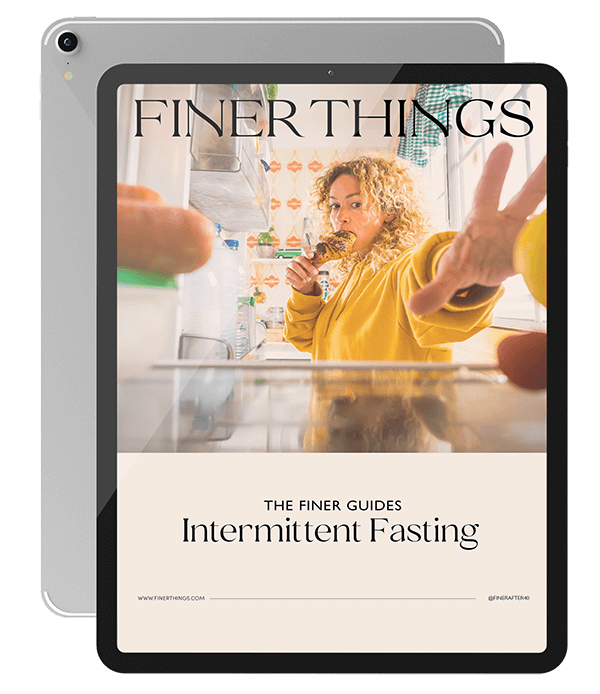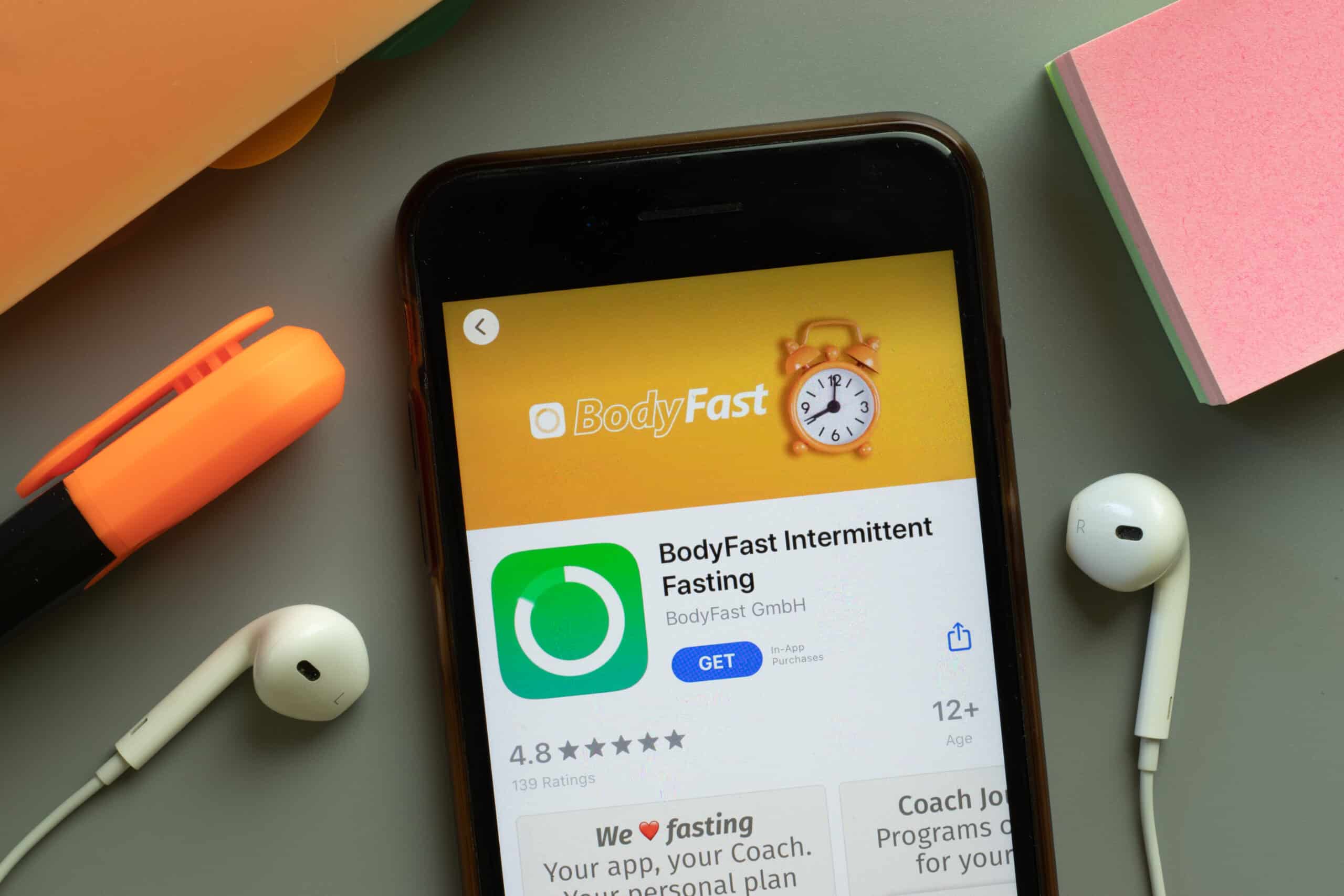Does Intermittent Fasting Work for Women Trying to Lose Weight?

By Finer Things Contributors
Like it or not, body weight can have an impact on our overall wellness especially when it comes to our own perception of ourselves. However, many women experience difficulty in losing weight.
Intermittent fasting is gaining popularity as an alternative to calorie restriction that can reduce body fat and improve women’s health. Rather than considering a “fasting diet” consider this an ongoing lifestyle adjustment that’s sustainable overtime.
What is Intermittent Fasting?
Intermittent fasting is a method of restricting consumption based on time rather than caloric counts. It entails eating during a specific time period and, more importantly, abstaining from food for the opposing period of time.
This window of fasting can either be for certain hours of each day – usually 12 or 16 hours but up to 20, or it can be alternate-day fasting, in which you eat and fast on alternating days.
How Does Intermittent Fasting Affect Weight Loss?
The idea behind intermittent fasting is that your body will burn through the calories you consume during the day within the first several hours of fasting. For the remainder of your fasting period, your body will burn fat instead.
It’s similar to the natural cycle of eating during the day and fasting during the night, which is commonly undermined through late-night snacking.
What makes intermittent fasting effective is that it switches your body into ketosis or fat-burning mode, but you aren’t deprived of food for long enough for your body to enter starvation mode and begin storing fat.
A study published in the New England Journal of Medicine found evidence that eating for six hours and fasting for 18 hours each day led to the metabolism switching from burning glucose to ketones.
An analysis of 27 studies conducted on the effects of intermittent fasting on overweight individuals showed weight loss of 0.8% to 13% with no adverse effects. These studies varied widely in methods and duration, but on average, participants lost 7-11 pounds over 10 weeks.
These losses occurred regardless of changes in overall calorie intake, and the studies showed that most weight lost with intermittent fasting was fat loss.

Reduced Snacking
One of the ways that intermittent fasting can help with weight loss is by reducing late-night snacking. If your 4-12 hour window for eating is over, and you’ve entered your 12-20 hour fast period, you no longer grab that bag of chips or soft drink or other snacks late in the evening.
These types of snacks can add a significant amount to your calorie intake each day, so simply eliminating this snacking can have as much impact on your daily calorie consumption as sticking to a specific eating plan.
Intermittent Fasting Versus Calorie Restriction
Twelve studies comparing intermittent fasting to calorie restriction showed similar results between the two groups. Both experienced weight loss in similar amounts and had similar changes in body composition. The two groups also experienced similar additional health benefits and drop-out rates.
This data indicates that one method might not be more effective than the other for weight loss. Instead, it may be better to look at it as which method is easier for you to stick with?
If meal plans and restrictive diets are difficult for you to follow long-term, intermittent fasting might be a preferable option. On the other hand, if periods of fasting are likely to cause overeating for your entire eating window, you may prefer calorie restriction.
Additionally, every body is different, and what works for one person won’t work for another. You may benefit from trying both calorie restriction and different types of intermittent fasting to see what works for you.
Just be sure to give each method enough time. It takes time to adjust to a new pattern of eating, and some of the “side effects” of beginning intermittent fasting can include short-term crankiness and hunger. These tend to subside after a couple of weeks.
No matter which method you attempt, scale the adjustment to be sustainable. Overly aggressive restrictions in calorie or eating hours will lessen your overall impact on weight. A long-term study on weight loss maintenance actually linked flexible restriction, that is informed by internal factors rather than strict rules, to result in higher rates of sustained weight loss. So, allow some wiggle room in your diet for changes you can keep.
Other Benefits of Intermittent Fasting
Studies have shown evidence of several other benefits of intermittent fasting, including:
- Improved heart health
- More balanced blood sugar levels
- Better memory
- Improved glycemic control
- Decrease in insulin levels
- Lowered glucose level
- Reduced cholesterol
- Lowered blood pressure
There is also evidence that the bodily changes that happen during intermittent fasting can protect against conditions like heart disease, type 2 diabetes, some cancers, inflammatory bowel disease, and more.
Obese participants in one study doing an alternate-day fast did not develop any binge-eating habits, but they did report being less depressed and having a better body image.
Get The Finer Life
Our Sunday email has tips and content you will love – exclusively for our subscribers.
"*" indicates required fields
Adverse Effects
No serious physical side effects were recorded in any of the compiled studies on intermittent fasting.
Some of the minor complaints study participants reported included:
- Weakness
- Headache
- Lack of concentration
- Dizziness
- Feeling cold
- Bad breath
- Nausea
- Constipation
- Sleep disturbances
However, compared to the baseline, these symptoms did not significantly change during fasting.
Before trying intermittent fasting, consider whether it will impact your mental health or relationship with yourself or food. Those with a history of disordered eating patterns shouldn’t restrict their food at risk of encouraging an unhealthy dynamic with their nutrition.
How to Intermittent Fast
First, make sure intermittent fasting is safe for you. If you are pregnant or breastfeeding, under age 18, or have diabetes, eating disorders, or some other conditions, fasting may not be healthy for you. Talk to your primary physician before any major behavioral changes.
If you decide to go forward with intermittent fasting, you can choose the fasting method that works for you, whether it’s fasting on certain days of the week – either alternating days or two days of your choosing, or it’s a fasting window each day – usually 12, 16, or 20 hours.
When doing alternate-day fasting or the two days of fasting each week, aim for your fasting days to include no more than 25% of your recommended calorie intake. Your non-fasting days should not be more than 125% of your recommended daily calories.
If choosing hours of the day to fast, consider what you’ll be able to stick with the most easily. If going without breakfast poses no issues for you, choose an eating window that begins at the noon meal.
But if you can’t imagine missing breakfast and typically eat a lighter meal in the evening, set your window from morning through the midday meal.
Be aware that while intermittent fasting does not restrict certain foods from your diet, it is not permission to eat whatever you want. You can feel free to have a dessert during your eating window, but don’t eat only desserts.
Healthy eating is still a priority. Proteins, fruits and vegetables, complex carbohydrates, and healthy fats are not only good for you, but they will also help you stay satisfied through your fasting windows. Consult a dietitian if you need help developing healthy eating patterns.
For support as you attempt to fast, download one of our favorite apps for some helpful trackers and supportive communities right in your pocket.
What’s the Ideal Fasting Window?
Studies showed that the most significant changes in weight occurred in people fasting for at least 16 hours a day. This length of fast was also easier for people to adhere to than an 18 or 20-hour fast.
Consider Whether Intermittent Fasting is Right for You
Though intermittent fasting has not been studied enough to offer certainty regarding long-term effects or weight loss, it does show promise, especially for women who have trouble sticking to a diet that restricts calories or specific foods.
If intermittent fasting is something you think might work for you, make sure to seek medical advice, especially if you have any health concerns or take medications that must be taken with food.
Bottom line: intermittent fasting can often aid in weight loss.
Learn More About Intermittent Fasting
For more information on intermittent fasting from Finer Things, read our other articles.
→ Intermittent Fasting For Women Over 50 – A Complete Guide
→ What Are the Best Intermittent Fasting Apps for Women?

Want a Free Guide?
You will receive our free 19-page guide and access to our exclusive content, private invitations, and tips you’ll love.
"*" indicates required fields
Facebook Group




